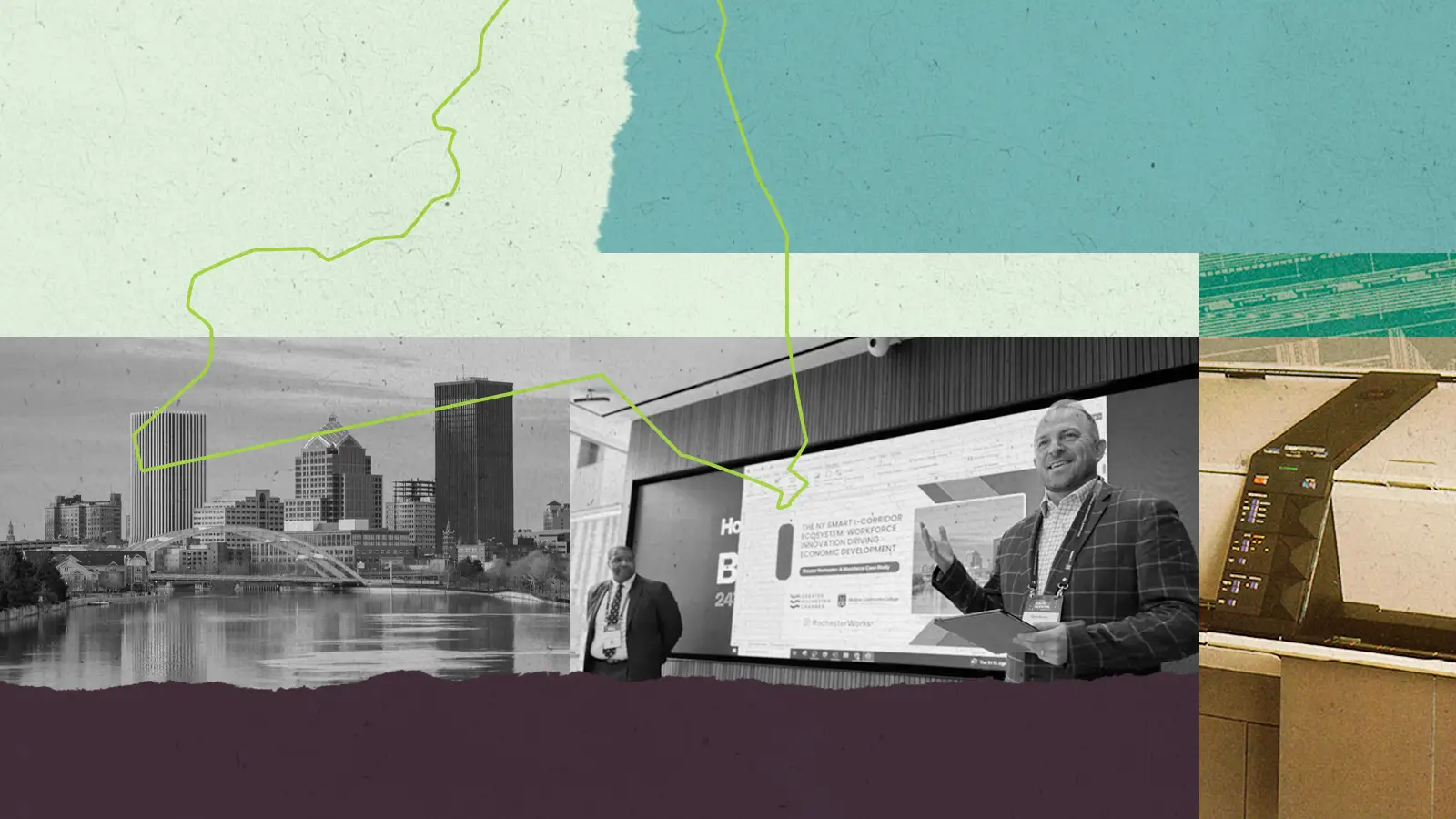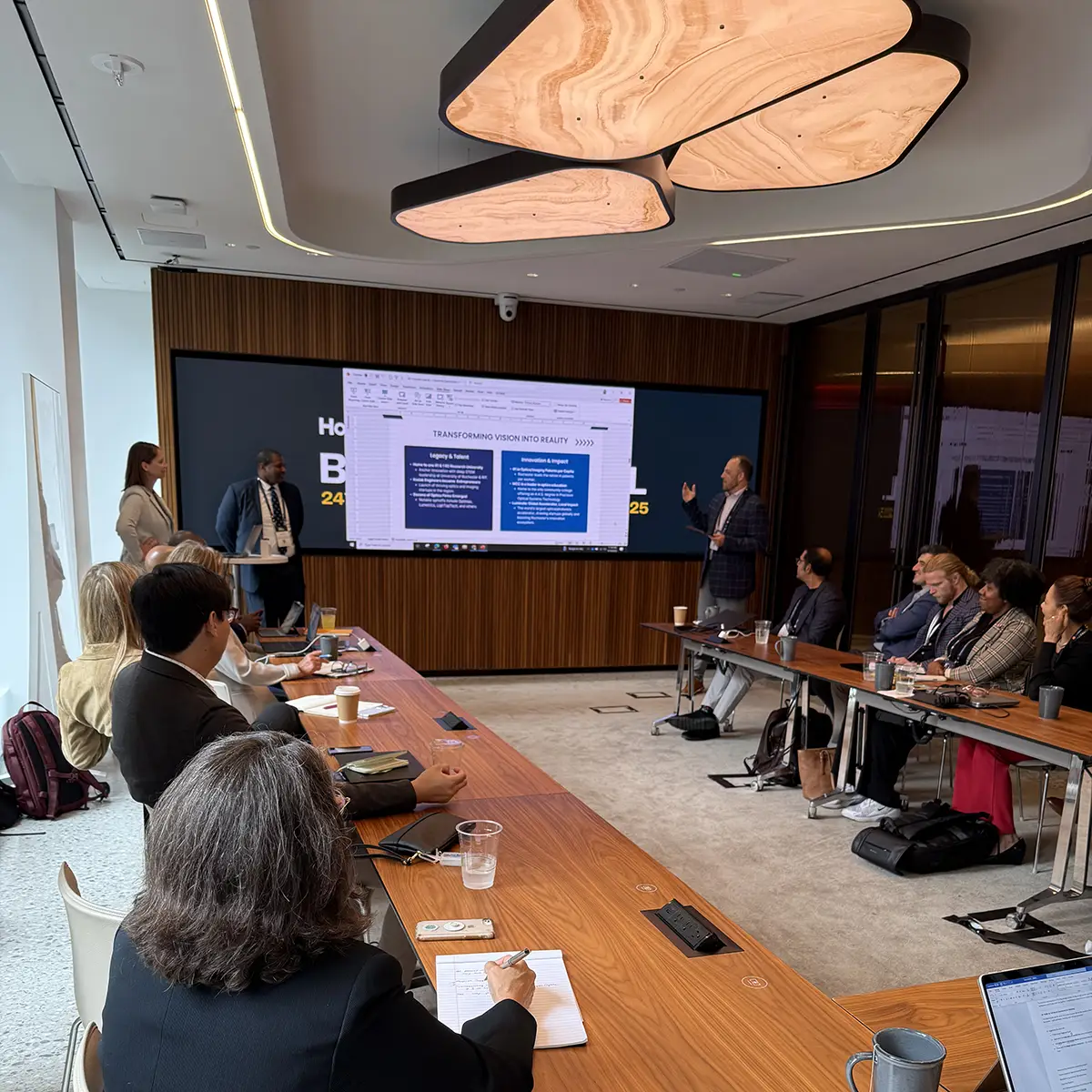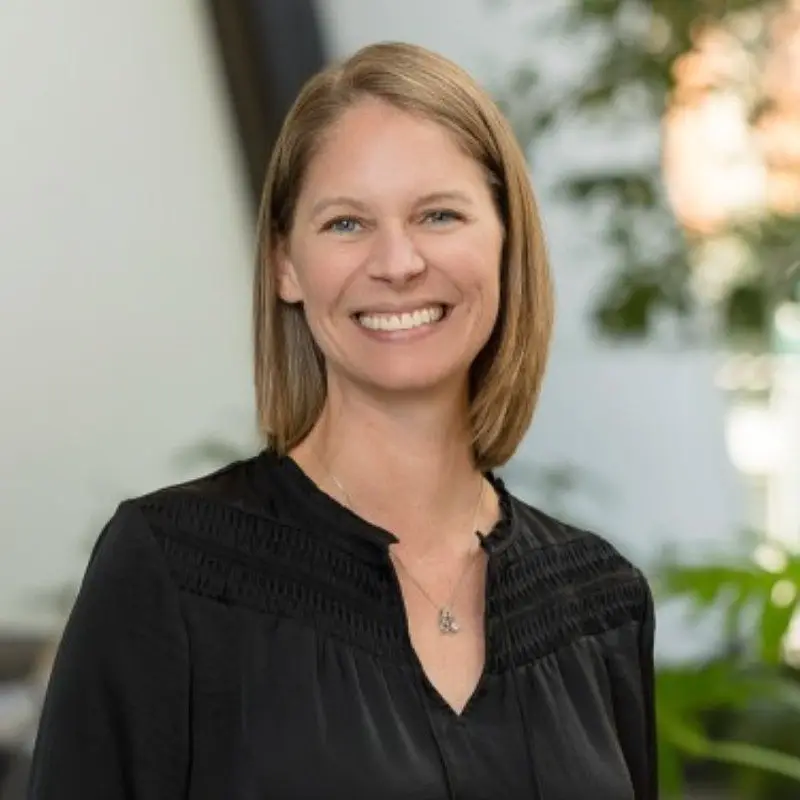
Sep 23, 2025

The Advanced Manufacturing Skills Leadership Council recently hosted its second gathering at HolonIQ’s Back to School Summit in New York City. This convening of global leaders and experts surfaced some of the most pressing challenges in preparing talent for advanced manufacturing.
At this session, three speakers shared regional case studies on how communities are reimagining their workforce systems. For the first in our new Dispatches from the Field series, we’re highlighting insights from Melanie Russo, Workforce Innovation Partner at the Greater Rochester Chamber of Commerce, who spoke about Rochester and the broader NY SMART I-Corridor (Buffalo–Rochester–Syracuse).

Rochester’s story is one of legacy and reinvention. Home to Kodak, Xerox, and Bausch & Lomb, these manufacturing legends have downsized massively, but many skilled workers stayed close to home. The region has since pivoted from large-scale legacy manufacturing to become the nation’s leader in optics and imaging patents per capita. Now, with the NY SMART I-Corridor designated as New York’s semiconductor tech hub and bolstered by $40 million in federal investment, the region is preparing to meet unprecedented demand.
What makes this transformation possible is collaboration. Local employers, educators, and policymakers are working in alignment to match legacy strengths with future-facing industries. But, as Melanie shares, the challenge remains urgent: without scaling workforce training, thousands of high-quality jobs risk going unfilled.
———

Can you tell us a little about yourself and your role?
I spent the first 15 years of my career in HR. Now that I’m on the other side of the fence, I talk a lot about what I wish I knew when I was in HR. I’m passionate about helping employers tap into the full value of our region’s workforce development ecosystem — because there are a lot of things I would’ve done differently, had I known what I know now.
As Workforce Innovation Partner at the Greater Rochester Chamber of Commerce, my role is all about connecting the dots between talent, training, and opportunity across the nine-county Finger Lakes region. I support our regional talent strategy and help drive workforce efforts tied to the NY SMART I-Corridor Tech Hub. I’m here to support any employer looking to approach their talent strategy in new ways. At my core, I’m a convener — I don’t have to be the hero in the story, but I’ll move mountains to make sure the right people are in the room and supported to make things happen.
What led you to participate in the Council?
I joined the Council because I have a big task ahead — helping our region train 5,000+ people for mid-level semiconductor roles and 3,000+ for construction — and I know we can’t do it in isolation. While I’m deeply connected to our cross-regional Tech Hub team, I believe in looking up, out, and around to understand what’s working across the local, state, and national landscape — and to bring those insights home.
Workforce challenges aren’t theoretical in my world. I hear from employers every week who can’t find talent, and from students and job seekers who don’t see where they fit. I see this Council as a space to share ideas, learn from others, and build solutions that are inclusive, grounded, and agile enough to respond to rapid change.
From your perspective, what are the most pressing workforce challenges in your region and sector right now?
What advice would you share with other leaders tackling similar challenges?
If you tried something and it didn’t work the first time, don’t walk away — reflect, refine, and try again. Let’s talk. What worked? What didn’t? What are your goals? There are partners and resources ready to support you.
And for employers: shift the mindset from “fix it for me” to “how can we fix it together?” We saw the silver tsunami coming for years, but it only got attention when it reached crisis level. We can’t afford to keep being reactive. As our workforce shrinks, we need to make sure every person who wants to work finds a meaningful path to do so.
———
At inSpring, we follow Melanie’s “how can we fix it together” mindset, working to drive ecosystem collaboration in every region we support. We believe stories like Rochester’s highlight the urgent need to rethink how talent pipelines are built at the local level. Across the US, employers are chasing ambitious growth goals, but the workforce just isn’t keeping pace.
Our mission is to close those gaps, aligning skilled global talent with regional needs. We’re actively collaborating with the Greater Rochester Chamber of Commerce to build a sustainable Regional Talent Hub. The project, Greater ROC Global, shows what’s possible when communities act through urgency and partnership.
At inSpring, we’re ready to bring the skills solutions to the table. Learn more about how inSpring’s building your next-gen workforce here. If your region is navigating change, we’d love to talk about what’s next.